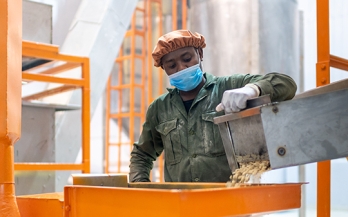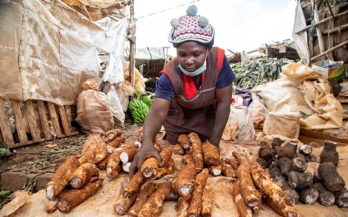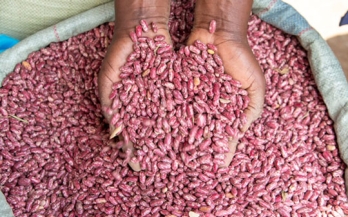- 02/05/2022
As part of critical knowledge generation to inform policy development and stakeholder alignment on the prospects for rice fortification in Nigeria, a detailed landscape analysis of Nigeria's rice sector was undertaken along with a technical feasibility assessment of the opportunities and viability of rice fortification in Nigeria.
- 11/10/2022
Today, more than 125 countries have mandatory food fortification programmes. Food fortification requires a "premix" – a mixture of vitamins and minerals – that can then be added to various staple products.
1 in 2 people reading this article are likely experiencing hidden hunger, in other words a lack of essential vitamins and minerals. That matters because these "micronutrients" are the micro drivers of functions such as our immune systems which keep us safe and healthy.
- 17/09/2022
Motivated by the need for such information for its own programmes, the Global Alliance for Improved Nutrition (GAIN) developed the Fortification Assessment Coverage Toolkit (FACT) in 2013 for carrying out coverage assessments of fortification programmes.
GAIN is launching a short animated video, packed with key facts and information about large scale food fortification. It is a great tool for advocacy and education in countries where increasing access to fortified foods is on the agenda.
- 27/07/2022
Using a theory of change or a programme impact pathway to guide design, monitoring, and evaluation efforts is increasingly being used across various nutrition interventions, yet there are few documented examples in biofortification programmes.
- 26/07/2022
Biofortification (or nutrient enrichment) of staple crops has the potential to contribute to reducing micronutrient deficiencies by increasing micronutrient intakes. In 2019, GAIN and HarvestPlus entered a partnership to lead the Commercialisation of Biofortified Crops (CBC) Programme, which aims to catalyse commercial markets for biofortified crops in six countries across Africa and Asia.
- 11/07/2022
Micronutrient deficiencies are a public health challenge in Bangladesh. Many children, women, and vulnerable populations are not getting the nutrients they need for proper brain development, immunity, and physical and mental health. Together with diversified diets, large scale food fortification has the potential to make a significant impact on micronutrient deficiency in Bangladesh.
- 11/07/2022
Accelerated digitalization is one of the most significant growth engines for developing nations. With technology driving increased sales and profits globally, a digital quality assurance/quality control (QA/QC) system for food fortification in Bangladesh will open THREE paths to greater efficiency and enhanced financial performance for fortified food producers.
- 11/07/2022
Monitoring the quality of fortified foods has traditionally been a manual, time-consuming process, which relies primarily on sporadic testing once products have reached the market. A partnership of international specialists and experts is working with Bangladesh’s food producers to develop a platform of sensors and software, enabling oversight of the production process and product quality.









